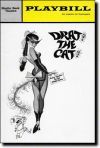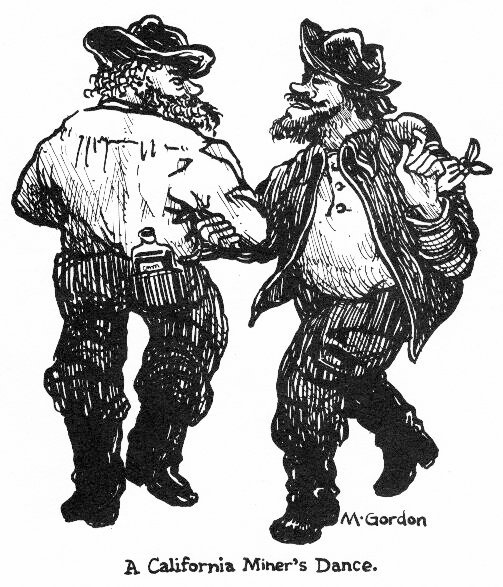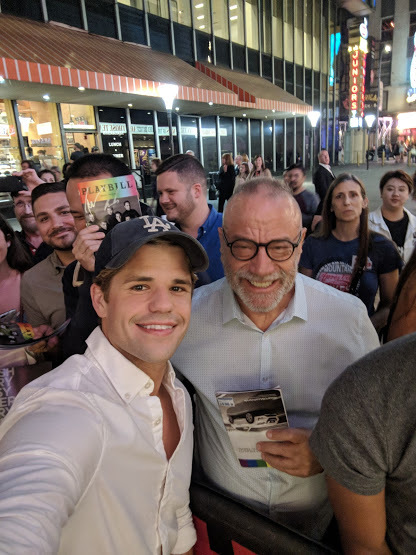1960s/1970s Musical Theatre Revolution / Sondheim Controversy
#251960s/1970s Musical Theatre Revolution / Sondheim Controversy
Posted: 5/5/14 at 10:42pmPalJoey, though I think Sondheim is one of the best composers of all time and certainly the best lyricist (no competition) there are some composers nowadays who come close. I'd start with Jeanine Tessori and Tom Kitt, and there are cases to be made for LaChiusa and RSO as well.
#261960s/1970s Musical Theatre Revolution / Sondheim Controversy
Posted: 5/5/14 at 10:46pmAside from having no idea who RSO is, mJohnson, I agree with you, myself. The thing is it says something that none of those people have really had success *on* Broadway. I think that's where the shift is happening.
After Eight
Broadway Legend Joined: 6/5/09
#271960s/1970s Musical Theatre Revolution / Sondheim Controversy
Posted: 5/5/14 at 11:02pm
^
Kitt's Next to Normal recouped its investment in its Broadway run. How many of Sondheim's shows did?
"I know for certain subjects that have been relatively obscure in university (like a comic book class,)"
That's what's being taught in universities nowadays?
#281960s/1970s Musical Theatre Revolution / Sondheim Controversy
Posted: 5/5/14 at 11:07pm
Although I can understand why some would feel Sondheim's rise coincided with the "death knell" of musical theatre relevance to mainstream popular culture, I think there's something to be said for Sondheim's contribution towards moving musical theatre into an art form in itself, with aesthetic sensibilities that can be independent of whatever the popular musical zeitgeist of the time happens to be be. During a tiem when musical theatre could basically have ended up becoming the lame younger step-brother of rock music and film, Sondheim lent the art form a sense of dignity. (Not just Sondheim alone, of course. Kander and Ebb, Hamlisch, et al. all contributed to reclaiming musical theatre's sense of self-entity.)
Sondheim's songs really can only thrive within the context of his shows. You can't really extract them out of the framework of the larger dramatic picture and turn them into pop singles because, stylistically, they stand outside mainstream contemporary commercial music; and lyrically, they have a specificity about them that can't really be separated from the plot or character. (It's been tried, like the Liza Minelli/Pet Shop Boys "Losing My Mind", but those are mostly quirky curiosities.) But they operate effectively in conveying character and dramatic movement as part of a work of musical theatre.
I think, in this day and age, the attempt to adapt contemporary music styles (whether it's rock, rap, or dance music) to the Broadway stage often ends up feeling false and I think does a disservice to Broadway because it simply paints Broadway as lame and out-of-touch. Putting on a musical is a slow, drawn-out process. Getting a musical to Broadway takes even longer. Popular music is extremely ephemeral: music is meant to be disseminated to a point of market saturation and then fall into obsolescence in less than a year. A Broadway show cannot keep up with the pace of the pop music industry in the age of the internet. By the time something manages to get the Broadway stage, it's often past the point of cultural resonance. (Think: American Idiot -- that show came five years too late.) I think composers would do better to take a cue from Sondheim and develop their own musical language that doesn't try so hard to be "relevant."
Updated On: 5/5/14 at 11:07 PM
#291960s/1970s Musical Theatre Revolution / Sondheim Controversy
Posted: 5/5/14 at 11:30pm
"Just imagine a school that in its exploration of a popular art form would be interested in what ordinary people who are interested in that form have to say. Why it's absolutely extraordinary. Preposterous! "
You said it, not me. Preposterous. I repeat : Find a school that understands REAL RESEARCH.
#301960s/1970s Musical Theatre Revolution / Sondheim Controversy
Posted: 5/5/14 at 11:34pm
A8 said: "Kitt's Next to Normal recouped its investment in its Broadway run. How many of Sondheim's shows did?
"I know for certain subjects that have been relatively obscure in university (like a comic book class,)"
That's what's being taught in universities nowadays? "
By my count 5 of Sondheim's have. I suspect a number of others have recouped since then, but who knows. However, my reply was to a post that said nothing about Next to Normal (a show I really enjoyed, but somehow doubt you did.)
And yes, four years back I did a class on graphic novels as an English elective. Taught by a great professor--we covered everything Fun Home (you'll be pleased to know,) to Mazzucchelli's Asterios Polyp which are both pretty amazing. It was taught by a visiting prof from Penn State. Pretty shocking, hey?
#311960s/1970s Musical Theatre Revolution / Sondheim Controversy
Posted: 5/5/14 at 11:37pm
As a theater lyricist myself, I think we all toil under the shadow of Stephen Sondheim. Either we are striving to live up to his example (which is not the same as copying him) or we are rebelling against his principles to do something else.
On a broader note, henrik is right, as usual:
"The mid-late 1960s ended the brief golden age of the American musical. This is true for a variety of reasons. Chief among them the growing disparity between popular music and stage music. Previously there was a constant overlap; since then an incidental one."
One need only look at the simultaneous demise of Tin Pan Alley to see the effect of folk/rock and the rise of the singer-songwriter to see the impact.
***
But in a more thematic sense, the Golden Age of the R&H style musical was in decline even before pop music changed. Look at them structurally and all R&H shows (as well as their imitators) tell the same story as OKLAHOMA!: disparate and competing groups set aside their differences to form "America". It doesn't matter whether it is farmers/cowboys, East/West, union/management, "English"/Amish, upper/lower class, etc. and so forth. (I'm not saying all the shows were set in the U.S., but that they were based on America's national myth. It's why upper and lower class come together in MY FAIR LADY even though PYGMALION makes it clear this is impossible.)
But the Young Turks of the 50s took a dim view of Hammersteinian optimism. And Bernstein, Sondheim, Fosse, Prince, Laurents and especially Jerome Robbins tended to favor shows in which happy reconciliation was a fool's errand.
By the sixties, musicals were more likely to be based on the triumph of the individual (MAME, DOLLY!, FUNNY GIRL, MAN OF LA MANCHA, even FIDDLER in a way) rather than the melting pot of the American myth. So the content was changing even as popular music changed.
It was only natural that changing dramaturgy would lead artists to base their form on content instead of an underlying national mythology. But that in turn made musicals a specialized experience rather than a national ritual.
#321960s/1970s Musical Theatre Revolution / Sondheim Controversy
Posted: 5/5/14 at 11:40pm
Mike, I would agree with a lot of what you write.
" Putting on a musical is a slow, drawn-out process. Getting a musical to Broadway takes even longer. Popular music is extremely ephemeral: music is meant to be disseminated to a point of market saturation and then fall into obsolescence in less than a year."
One thing about popular music too is that its lyrics are not meant to convey a direct story point or even idea (at least not initially.) Post 1960s pop music gains from hearing the song over and over--either because the lyrics start to make sense that they wouldn't initially after one hearing in the theatre, or if it's for, say a club song, something like "Let's all chant" takes on more meaning on the dance floor than it ever could with how inane it would sound in a show.
#331960s/1970s Musical Theatre Revolution / Sondheim Controversy
Posted: 5/5/14 at 11:43pm
"You said it, not me. Preposterous. I repeat : Find a school that understands REAL RESEARCH."
Now you've said it twice. So scram.
Eric- RSO is Ryan Scott Oliver.
After Eight
Broadway Legend Joined: 6/5/09
#341960s/1970s Musical Theatre Revolution / Sondheim Controversy
Posted: 5/5/14 at 11:48pm
"By my count 5 of Sondheim's have."
Which ones?
"Pretty shocking, hey?"
Not really.
#351960s/1970s Musical Theatre Revolution / Sondheim Controversy
Posted: 5/6/14 at 12:02amForum, Company, A Little Night Music, Sweeney Todd, Into the Woods.
#361960s/1970s Musical Theatre Revolution / Sondheim Controversy
Posted: 5/6/14 at 12:05amUhh, unless you are talking about the revival of Sweeney Todd, there is no way that show made back its money on its original broadway run.
#371960s/1970s Musical Theatre Revolution / Sondheim Controversy
Posted: 5/6/14 at 12:14amOn tour, then. So I subtract it to four.
#381960s/1970s Musical Theatre Revolution / Sondheim Controversy
Posted: 5/6/14 at 1:42am
Sally dahhling,
With all due respect dear you need a better thesis. Right now you have a vast, wishy-washy research topic. Narrow it down. Take a position and be persuasive. A good thesis is very hard to write, but once you get it right the research process will be much shorter and you'll have a better paper.
#391960s/1970s Musical Theatre Revolution / Sondheim Controversy
Posted: 5/6/14 at 7:13pm
I'm not disagreeing with Mike's argument that pop music can be ephemeral. (Though I suspect he hasn't seen Springsteen perform in New Jersey. Those people have memorized every word and note the man ever put down!)
But in another sense, the opposite is the case. Pop songs are written to be played over and over, formerly on the radio and now on personal media. The best pop lyrics leave just enough unsaid that the listener has to fill in the blanks with each new hearing.
Show songs have to be understood in one hearing, even while sets are changing, people are dancing, etc. and so forth. So, with a few exceptions, show songs have to be more "on the nose" than pop songs. Of course, too "on the nose" and you get a boring show, so it's always a balancing act.
***
One quibble: Mike I think the opposite is true. Sondheim's songs actually stand alone BETTER than the average modern show song. But Sondheim's material needs a theatrical or cabaret context (and an audience that understands dramatic songwriting). You're certain right that most of his work doesn't make for good pop songs.
Updated On: 5/6/14 at 07:13 PM
#401960s/1970s Musical Theatre Revolution / Sondheim Controversy
Posted: 5/6/14 at 7:21pmCome on, people. Two pages of serious responses? When are we going to learn? Stop doing Arizona State theatre majors' homework for them.
#411960s/1970s Musical Theatre Revolution / Sondheim Controversy
Posted: 5/6/14 at 8:10pm
Gaveston thanks for saying in better words what I was trying to say ![]()
#421960s/1970s Musical Theatre Revolution / Sondheim Controversy
Posted: 5/6/14 at 8:49pm
Hardly, Eric. You said it just fine.
HorseTears, I think most of us are now discussing the issue for our own edification. I for one have totally forgotten the OP's original question (not that I mind if s/he finds any of this helpful).
#431960s/1970s Musical Theatre Revolution / Sondheim Controversy
Posted: 5/7/14 at 7:18pmi have to chime in here alongside FRANK RICH...Sondheim's music and lyrics have been a part of my life for almost 50 years...from WESTSIDE STORY till now...is he a revolutionist?...perhaps not in the way that some think but he has changed the musical dialogue to the degree for better or worse that there does seem to be a vacuum now in Broadway musicals that may need sometime before we see the likes of Sondheim again...perhaps not in my life time or Sondheim's for that matter...it's not a bad thing, it is the evolution not revolution of Broadway that it goes through this every generation or so...we just can't see it yet...
#441960s/1970s Musical Theatre Revolution / Sondheim Controversy
Posted: 5/7/14 at 10:39pm
Perhaps, broadwaybaby, but Manny Azenburg told me 40 years ago that the American musical was going the way of grand opera, that it would become a specialized interest and require considerable subsidy to survive. I was shocked at the time, but I haven't seen anything since that proves him wrong. Manny may have been thinking of direct government subsidies, but what we usually see instead are Broadway musicals recouping not in New York but in state-subsidized regional theaters.
However, we needn't lament too much. Monteverdi is still performed (and new operas are being written), 500 years after he wrote the earliest operas.
Updated On: 5/7/14 at 10:39 PM







